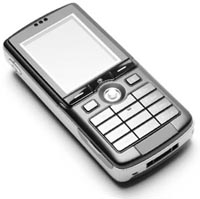Firstly let’s clarify – What is Electromagnetic radiation (EMR)??
 Simply, it is a form of non-ionizing radiation (excites the matter but structurally doesn’t change it) which we encounter from electrical and communications equipment.
Simply, it is a form of non-ionizing radiation (excites the matter but structurally doesn’t change it) which we encounter from electrical and communications equipment.
Near ultraviolet, visible light, infrared, microwave, radio waves, and low-frequency RF (longwave) are all examples of non-ionizing radiation.
How are we exposed?
Many household objects emit non-ionizing radiation and warrant our consideration.
THE FOLLOWING ITEMS ALL EMIT ELECTROMAGNETIC RADIATION:
• Computers, printers, scanners, gameboys, televisions
• Electric blankets
• Heated water beds
• Clock radios and wrist watches with glow-in- the-dark numbers
• Mobile phones
• Microwaves
• Electronic pest devices
Why is EMR a concern?
EMR has been linked with an array of health conditions. Studies (some more conclusive than others) have found links between electromagnetic fields and cancer, heart problems, reproductive problems, sleep problems, neurodegenerative diseases and lowered immunity, as well as harmful effects on the brain, the nervous system, genes and hormones.
Studies have also looked at links between EMR and brain tumours, Alzheimer’s and thyroid effects.
TIPS TO MINIMISE EMR EXPOSURE IN YOUR HOME and OFFICE:
1. Make sure your bed (preferrably not your house either) is not positioned close to house meter boxes and neighbourhood power converters. You can obtain an EMR appraisal for your home to identify trouble spots
(please see National Health and Medical Research Council
Online: www.health.gov.au/nhmrc )
2. It is advised that electrical items should not be close to your bed and if possible be turned off when you are sleeping.
3.Try using alarm clocks that are battery operated, with a push button light. Or keep your digital clock at least on the other side of the room.
4.Microwaves should be utilised as little as possible and turn off when not in use.
5. Minimise your mobile phone use and do not carry your phone on your body or close to your abdomen, as it attracts radiation even when not in use. It’s best to turn it off when you are not using it and never leave it beside you whilst sleeping.
Hands-free systems are a safer alternative, when placed away from your body.
Unfortunately I-phones are predicted to be worse for our health due to the great number of applications they have increasing their frequency of use.
6. Do not sleep with an electric blanket on.
7. Sit a considerable distance from the TV.
8. Limit your computer use. If your disc drive is separate to your terminal then turn your terminal off when not using. Move away from your computer frequently.
9. Use desk lights that have incandescent light globes rather than fluorescent or
halogen globes.
10. Do not use Electronic Pest Devices.
Food for thought. These little things help us protect our families health.



